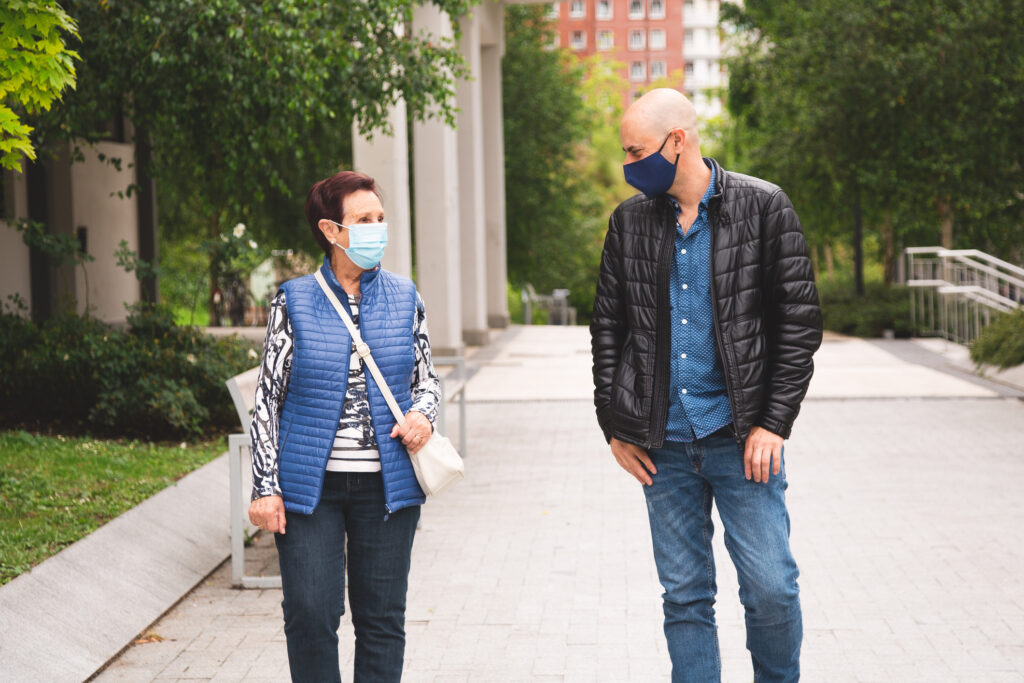Apart from skin cancer, colorectal cancer is the third most common cancer diagnosed in the U.S. for both men and women. With well over an estimate of 100,000 new cases for colon, and over 45,000 new cases for rectal cancer.* March is Colorectal Cancer Awareness Month – an opportunity to educate about colon and rectum diseases, and promote awareness of the importance of colorectal cancer prevention, screening, and treatment.
Why Colorectal Cancer Awareness is Important
A. Colorectal cancer is preventable
Colorectal cancer incidence rates have declined since the mid-1980s.* This is due to increased awareness about screening and people changing their lifestyle-related risk factors, such as:
- Use of alcohol and tobacco
- Lack of physical activity or exercise
- A diet that’s high in red meats (such as beef, pork, lamb, or liver)
- Cooking meats at a very high temperature
- Having a low level of vitamin D
B. Colorectal cancer is detectable
Screening, such as FOBT/FIT stool tests available at BioReference, can help detect cancer early, when it’s still highly treatable, since polyps may take 10-15 years to develop into cancer.* With regular screening, healthcare providers can detect adenomatous polyps, precursors to cancer, that can be removed thereby before they turn into cancer. The American Cancer Society recommends regular screening at the age of 45 for people with average risk, and before age of 45 for people who are at high-risk.
People are considered to be of average risk if they do not have:
- A family or personal history of colorectal cancer or certain types of polyps
- A personal history of inflammatory bowel disease (ulcerative colitis or Crohn’s disease)
- A confirmed or suspected hereditary colorectal cancer syndrome, such as familial adenomatous polyposis (FAP) or Lynch syndrome (hereditary non-polyposis colon cancer or HNPCC)
- A personal history of getting radiation to the abdomen (belly) or pelvic area to treat a prior cancer
People are considered at increased or high risk if they have:
- A family history of one or more family member who has had colon or rectal cancer
- A personal history of colon or rectal cancer, certain types of polyps removed during a colonoscopy, and inflammatory bowel disease (Crohn’s disease or ulcerative colitis)
- Radiation performed to the abdomen or pelvic area to treat a prior cancer
C. Colorectal cancer is treatable
Various treatment options are available for colorectal cancer. Surgery is often the main treatment for early-stage disease. Other treatment options include radiation therapy, chemotherapy, targeted therapy, and immunotherapy.
The type of surgery and treatment may vary depending on the stage (extent) of cancer, where the tumor is located, and the goal of treatment. To aide in these decisions, GenPath’s proprietary OnkoSight test analyzes seven genes that are most important in colorectal cancer diagnoses. By focusing in on these genes, GenPath can provide the information needed most to determine the most appropriate therapeutic choice.
GenPath also offers hereditary cancer testing for colorectal cancer. For more on hereditary cancer testing, please click HERE.
Go Blue for Colorectal Cancer Awareness
This Friday, March 5, is Dress in Blue Day, a time for everyone to join the Colorectal Cancer Alliance’s mission to end colorectal cancer. By wearing blue, patients and providers alike can bring awareness to this disease, as well as honor all who are impacted by colorectal cancer.
Healthcare Providers
If you are a health care provider, click here https://www.genpathdiagnostics.com/hcp/oncology/ to learn more about our OnkoSight Advanced Next-Generation Sequencing and other Oncology test offerings, and click here to become a client so you can begin ordering FOBT/FIT and other colon and rectal tests.
References:
*. American Cancer Society https://www.cancer.org/cancer/colon-rectal-cancer.html





















